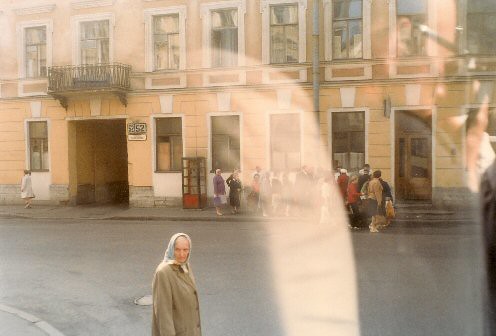OK, so, long story short I ran a bad race in Chicago and didn't make my goal of qualifying for Boston. I bonked badly over the last few miles again, and came in around 3:25. Lesson learned: i haven't figure out how to get through the last 10K yet.
I flew out of San Diego on Friday to Indianapolis, where my parents picked me up and drove me to my sister's house in Lafayette. On Saturday, my dad and my brother-in-law Mark took me up to Chicago, so that we could pick up my packet and i could check in to my hotel.
My habit of trying to turn mundane events into more of an adventure than they should be might have backfired this time. I got around to finding a hotel a bit late, so i ended up getting a room at the Chinatown Hotel in Chicago's Chinatown, so that i could be relatively close to Grant Park. I'd love to tell you that this is a hidden gem of a hotel; and who knows, maybe it will be some day when it's finished. I didn't expect to sleep much anyway, so the street noise was only a minor nuisance. Unfortunately, i was avoiding "interesting" food because of the marathon so i couldn't try any of the numerous restaurants in the neighborhood, much to my disappointment.
I checked out of the hotel a bit before 6am and started walking east on Cermak, then north on Michigan Avenue toward Grant Park. Downtown Chicago in the dark is less scary than you might imagine, though it appears that Chicago has some fairly sizeable rats. Took me only about 20 minutes to get to the marathon start area on Columbus Avenue, so i walked over to Michigan Ave. and bought a blueberry muffin and some water.
I did my normal pre-race ritual, a bit of walking around, a bit of stretching, did some Tai Chi, applied my BodyGlide, packed up my sweats and dropped them off at gear check. It was in the high 40s-low 50s by start time and there was a bit of wind off the lake. As the start approached the staging areas got pretty crowded. Even when you're near the front it's hard to be calm in a crowd of 40,000 people.
It took about 3 minutes after the gun to reach the start line. I felt OK at first except for some pain in my right foot, which i think is plantar fasciitis; but it was impossible to get into a rhythm. I spent the first few miles darting around people, accelerating and slowing, moving right and left. I didn't even bother to check pace until about mile 4, when i found that i'd managed almost exactly 7:30 pace. So far, so good.
It spread out a little after that, but it was still far and away the biggest crowd i've ever run in. It was cool to have spectators lined up along the streets for the entire run. That's the real appeal of the big marathons. I tried to stay around 7:30 pace. My strategy going into the race was to run 1:38 for the first half and then try to run the second half in 1:37. In June at the Rock 'n' Roll marathon i'd run under 1:35 for the first half and i'd assumed that this slightly-too-fast early pace had contributed to my decline at the end of the race. So when i hit the half-way point at about 1:37.40, i was happy.
On the other hand, i was already beginning to feel some tightness in my quads and a strange tightness across the bottom of my abdominal muscles. In June, i'd felt really good at halfway and had run very comfortably between 13-20 miles before i started to cramp up. I made sure to get Gatorade and water at every stop, but i was having trouble maintaining pace.
Still, i stayed on pace until about miles 21. I looked at my watch and realized i needed to run 5 miles in 40 minutes to make it under 3:20. Normally, this would be a casual jog, but i was already beginning to fade. By mile 23 my quads were so tight that i could only take short choppy steps. I decided to make one last push, so i timed myself between miles 23 and 24 running as hard as i could manage. An 8:50 mile. At that point, i knew i couldn't make it, and it took every bit of strength that i had not to simply stop. I hobbled toward the finish line, and finally straggled across, but i don't think i'll ever be more disappointed to simply finish a marathon.
After running a 1:30 half in August, i really thought that a 3:20 marathon was in the bag. So, was it worth it? I don't know yet. I could have saved a lot of money and time by staying home and running the Long Beach marathon. But then if i'd missed the time i'd have to wonder if i could have done better on a faster course. Plus, it was fun to be in Chicago and to see my family. I can't factor in how the travel, or irregular eating, or irregular sleeping might have contributed to my fatigue; but i'm inclined to think that it was more a training deficiency than anything to do with the circumstances. I'll probably not try to qualify for Boston again this year-- i feel like i need some time to let my nagging injuries heal and get back to the point where running is fun again.



